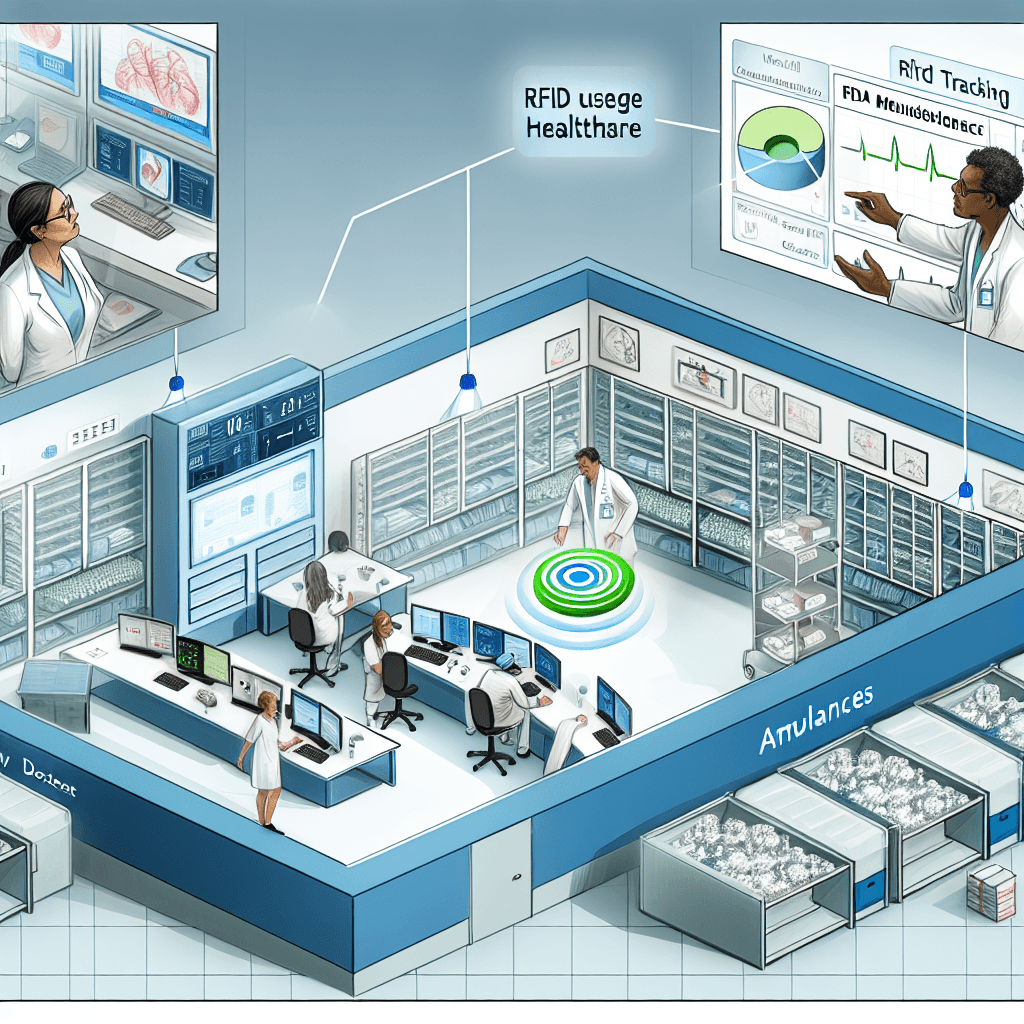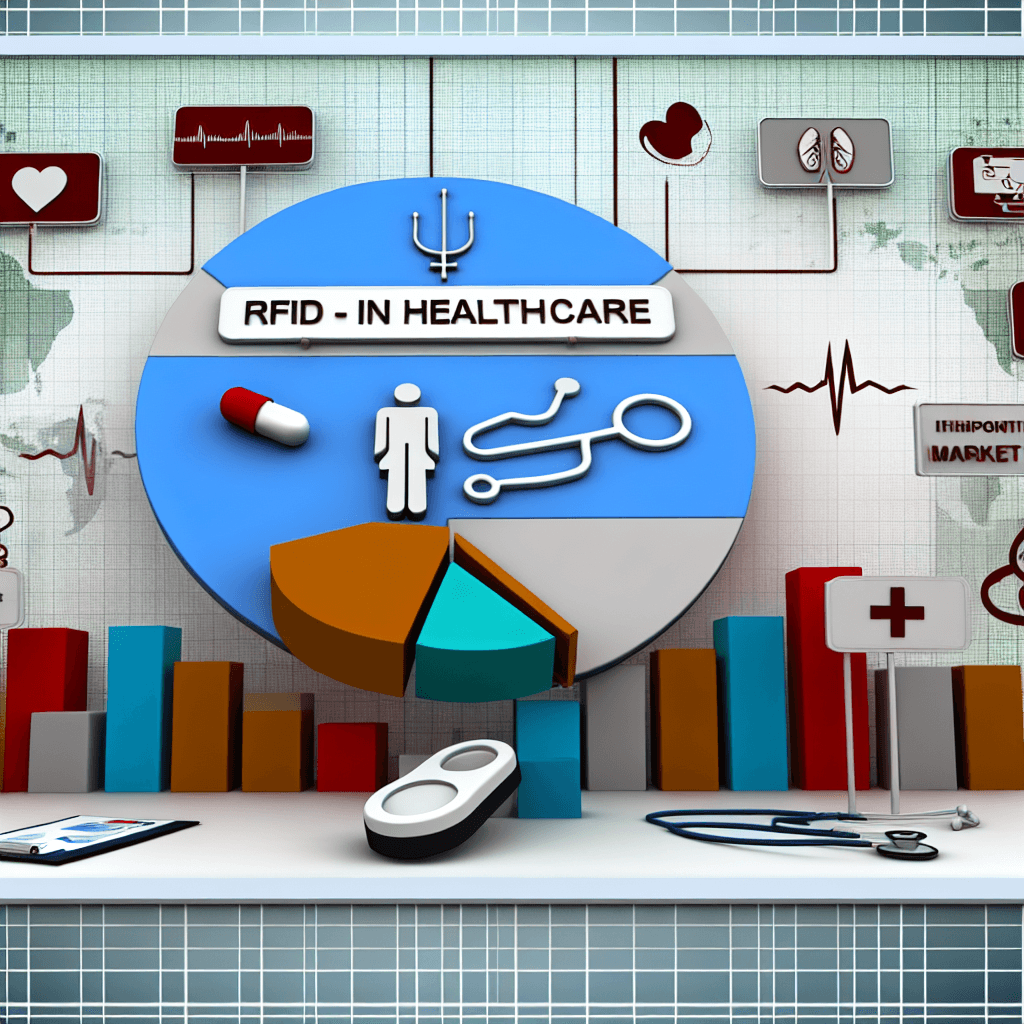Explore the RFID in healthcare market size, share, trends, opportunities, and forecasts for strategic insights.
RFID In Healthcare Market Size, Share, Opportunities, Trends & Forecast

Table of Contents
- RFID in Healthcare Market Size, Share, Opportunities, Trends & Forecast
- Understanding RFID Technology in Healthcare
- Current Market Size and Share
- Opportunities in RFID Healthcare Market
- Trends Influencing the RFID Healthcare Market
- Case Studies Demonstrating RFID Impact
- Challenges in RFID Adoption
- Forecast and Future Directions
- Conclusion
RFID in Healthcare Market Size, Share, Opportunities, Trends & Forecast

The integration of Radio Frequency Identification (RFID) technology in healthcare is revolutionizing the management of medical inventory, patient tracking, and overall healthcare delivery. This article explores the current market size, share, opportunities, and trends in RFID technology within the healthcare sector, and forecasts future growth and developments.
Understanding RFID Technology in Healthcare
RFID technology involves the use of electromagnetic fields to automatically identify and track tags attached to objects. In healthcare, RFID solutions are implemented to enhance the accuracy and efficiency of operations, ranging from asset tracking and management to patient care and medication management.
Current Market Size and Share
The global RFID in healthcare market has shown significant growth over the past few years. According to a recent market research report, the RFID healthcare market was valued at approximately USD 2.4 billion in 2020 and is projected to reach around USD 4.9 billion by 2026, growing at a CAGR of 15.3% during the forecast period.
This growth is attributed to several factors including the increasing need for reducing operational costs in healthcare facilities, the rising concerns regarding drug counterfeiting, and the growing focus on patient safety and staff efficiency.
Opportunities in RFID Healthcare Market
RFID technology in healthcare presents numerous opportunities for improving various aspects of healthcare delivery:
- Asset Tracking and Management: Hospitals can track the location and status of medical equipment, reducing the time spent searching for assets and increasing the utilization rates of medical devices.
- Patient Tracking: RFID wristbands can help monitor patient movements, ensuring that patients are in the correct location for their scheduled treatments and reducing the risk of patient elopement.
- Medication Management: RFID can be used to enhance the management of medication inventory, ensuring the right medicine is administered to the right patient, thus minimizing medication errors.
- Blood Tracking: RFID tags can track blood samples from the point of collection to transfusion, ensuring the traceability and integrity of blood supplies.
Trends Influencing the RFID Healthcare Market
Several trends are currently shaping the RFID in healthcare market:
- Integration with IoT: The integration of RFID with the Internet of Things (IoT) is creating smarter healthcare solutions that enhance data collection and improve operational efficiency.
- Focus on Patient-Centric Care: Healthcare providers are increasingly adopting RFID to focus more on patient-centric care by reducing wait times and improving the overall patient experience.
- Regulatory Compliance: Increasing regulations related to patient safety and data security are prompting healthcare facilities to adopt RFID technologies.
Case Studies Demonstrating RFID Impact
Several healthcare institutions have successfully implemented RFID systems, demonstrating significant benefits:
- Mayo Clinic: This renowned healthcare institution implemented RFID to track surgical instruments, which improved the sterilization process and reduced the risk of surgical infections.
- Johns Hopkins Hospital: By using RFID for managing medical equipment, the hospital reported a 20% reduction in time spent searching for devices, thereby enhancing healthcare delivery.
Challenges in RFID Adoption
Despite the benefits, there are several challenges associated with the adoption of RFID in healthcare:
- High Initial Investment: The cost of implementing RFID systems can be high, particularly for small healthcare facilities.
- Privacy Concerns: The use of RFID in patient tracking and data management raises concerns about patient privacy and data security.
- Technical Issues: Issues such as interference from other electronic devices and the need for standardization across different systems can hinder the effective implementation of RFID.
Forecast and Future Directions
Looking ahead, the RFID in healthcare market is expected to continue its growth trajectory. Innovations in RFID technology, such as the development of miniaturized and more cost-effective tags, along with the integration of RFID data with cloud computing and AI, are likely to drive further adoption.
Furthermore, as healthcare systems globally continue to emphasize efficiency and patient safety, RFID will play a crucial role in the digital transformation of healthcare.
Conclusion
The RFID in healthcare market is poised for significant growth, driven by the need for efficiency, patient safety, and cost management. While challenges such as high costs and privacy concerns exist, the benefits of RFID in enhancing healthcare operations make it a worthwhile investment. As technology advances, RFID is expected to become an integral part of the healthcare infrastructure, leading to more innovative and effective healthcare solutions.
In conclusion, RFID technology holds the key to transforming healthcare operations by ensuring safety, efficiency, and compliance, thereby benefiting healthcare providers and patients alike.








